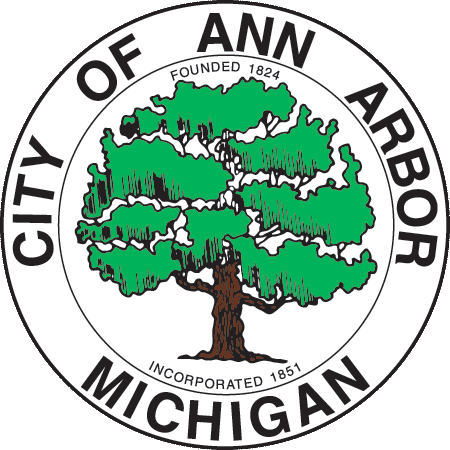City of Ann Arbor Soil Remediation Successfully Completed at Leslie Science & Nature Center

The City of Ann Arbor has completed environmental investigations and soil remediation at the Leslie Science & Nature Center (LSNC) park, allowing outdoor programming to resume. As a result of this, the city, with concurrence by the Michigan Department of Environment, Great Lakes, and Energy (EGLE), has determined that the remaining soil impacts do not pose an unacceptable risk of exposure to site visitors.
Testing was completed by the city’s environmental consultant, Tetra Tech, and soil samples were collected and analyzed to determine the bioaccessibility of the arsenic; that is the percentage of the arsenic that is available for uptake in a person through ingestion. This bioaccessible percentage was then used to calculate specific criteria for adults, children and workers on the site to ensure they were not being exposed to unacceptable levels. In each case, the values were below the most stringent criteria developed.
In addition to the arsenic, three feet of the depression area was excavated in November 2019 to remove the heavy metals previously detected in the former dump site. These soils were disposed of appropriately at a landfill. The depression area was backfilled with sand and topsoil.
EGLE agreed with the arsenic assessment and the mitigation activities to remove the heavy metals in the depression. In a letter dated Aug. 26, 2020, EGLE indicated that “described actions necessary to prevent or mitigate unacceptable exposures had been satisfactorily implemented and appear appropriate to have achieved compliance.” (Read the full letter HERE).
In other words, EGLE agrees that the city’s response activities have appropriately addressed the onsite contamination to allow for continued use of the site consistent with the LSNC’s intended use. The Washtenaw County Brownfield Redevelopment Authority provided a grant from the Local Brownfield Revolving Fund of $535,440 for investigation and remediation of the site.
“I’m thrilled to report that the soil remediation project at Leslie Science & Nature Center has successfully been completed,” said Derek Delacourt, City of Ann Arbor Community Service Area administrator. “Now, LSNC staff can focus on planning fall outdoor programming adventures for their families and campers.”
While the City of Ann Arbor owns the Leslie Science & Nature Center property and buildings, LSNC is a separate non-profit that operates programming at the site. Visit the LSNC, https://www.lesliesnc.org/, website for outdoor programming details that will be available soon.
Project Background
In April 2019, during the construction planning phase of the Nature Playscape project, LSNC staff asked the city to analyze soil near the construction site after an unnatural depression in the woods was discovered. An old, hand-marked map indicated there may have been a dump site in the woods where there were no play structures or programming.
The property had been gifted to the City of Ann Arbor by its previous owner Dr. Eugene Leslie, who was active in the field of chemical engineering and was a professor at the University of Michigan. The property was the headquarters for much of his pioneering work and included fruit orchards.
Once city staff became aware of the situation, they engaged Tetra Tech to collect soil samples from a number of locations in and around the proposed play area and perform testing for a variety of contaminants. Soil samples were collected on May 30, 2019. On June 20, the city received draft soil test results, which indicated elevated levels in the reported dump area of the property of arsenic, cadmium, chromium, copper, lead, zinc, selenium, silver and mercury in addition to some volatile and semi-volatile organic compounds.
Soil samples taken near the proposed future site of an inclusive Nature Playscape construction area indicated elevated levels of arsenic and lead. As a result, in an abundance of caution, the LSNC moved all programming offsite until further testing was completed. Temporary fencing was installed to prevent access to impacted areas. Finally, the city engaged Tetra Tech to proceed with implementing a remediation plan for the site that included excavation of the former dump site and determining the bioaccessibility of the arsenic onsite.

























